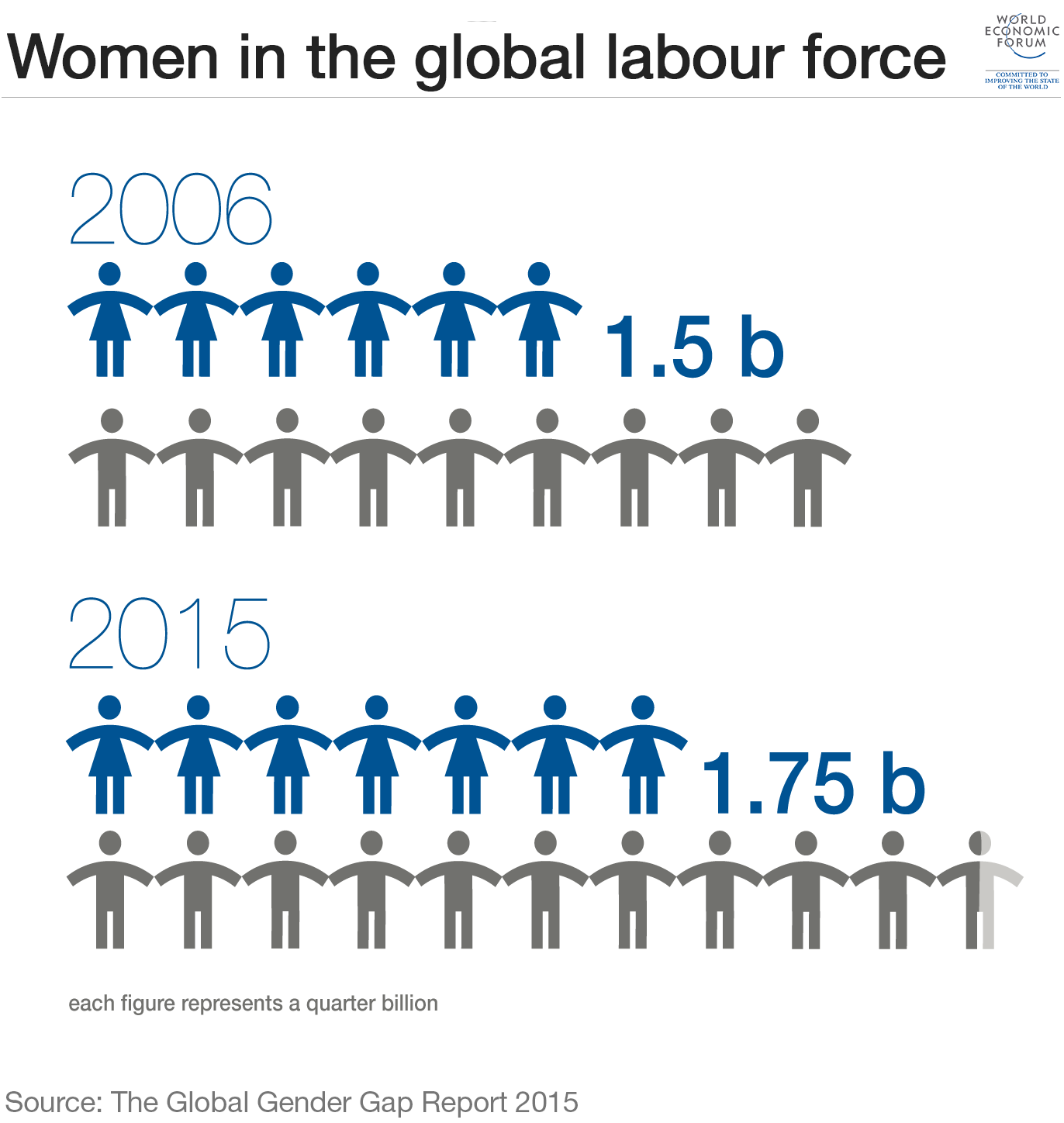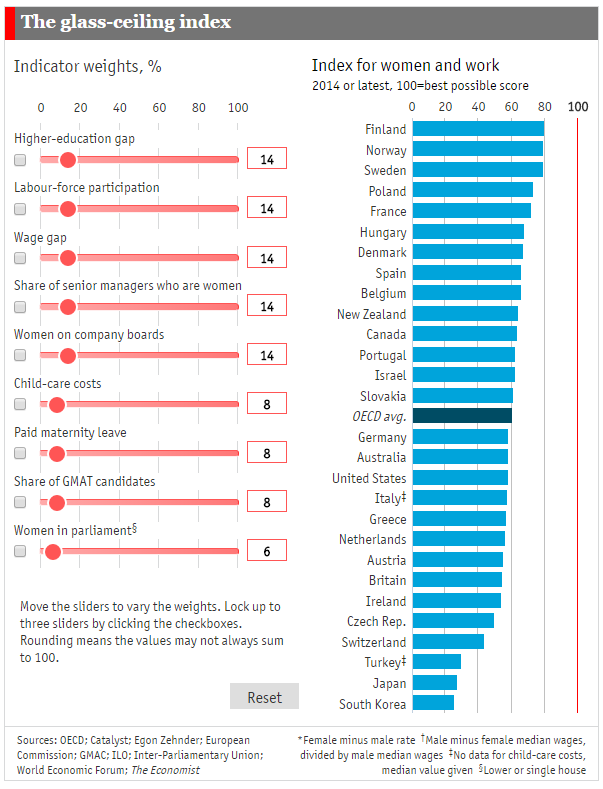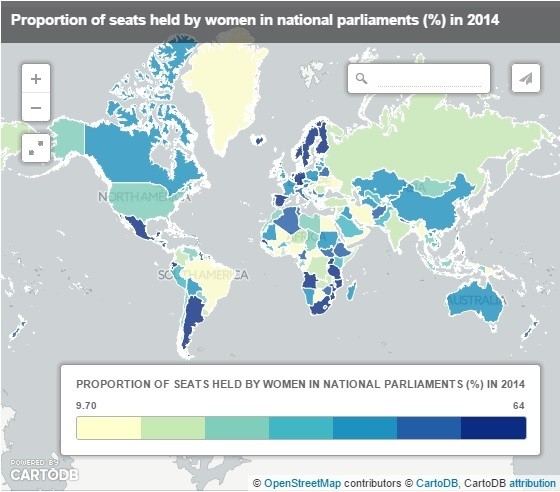Which is the best country to be a working woman?

A woman is silhouetted next to a solar panel display.
Image: REUTERS/Yuriko Nakao
Stay up to date:
Future of Work
The World Economic Forum's Global Gender Gap Report has measured the wage difference between women and men for 10 years, and the 2015 edition highlights women’s progress towards equality over the past decade.
Since 2006, an extra quarter of a billion women have entered the workforce, and the number of female politicians is rising in many countries. But it's not all good news: the report also shows how much work is required before the world achieves gender equality.

The Economist has created a glass-ceiling index based on data from the Forum’s report as well as from the OECD, the European Commission and other sources, which measures how well OECD countries perform when it comes to equality for working women.
An interactive version of the chart is available here.

Each country’s score is a weighted average of its performance across nine indicators: higher education gap; labour-force participation; wage gap; share of senior managers who are women; women on company boards; childcare costs; paid maternity leave; share of GMAT (Graduate Management Admission Test) candidates; and women in parliament.
Finland comes out top as the best country for working women, followed by fellow Nordic nations Norway and Sweden. These countries score highly in most categories, and take the top spots in labour-force participation. Finland and Sweden have the highest scores for women aged 25-64 when it comes to higher education and the proportion of women in parliament.

Norway’s law requiring 40% of public limited company board members be women, which came into force in 2008, is paying off. The country secured the top spot for the most women in boardrooms. However, it ranks considerably lower (15th) for the number of women in senior managerial positions. In this category, the United States takes the top spot with a 42.7% share of female senior managers.
The OECD countries with the lowest overall scores are Turkey, Japan and South Korea, with Turkey seeing the lowest labour-force participation, Japan the lowest share of women in parliament, and South Korea the largest gender wage gap.
However, when it comes to paid maternity leave, Turkey, Japan and South Korea rank higher than Denmark, Norway, Canada, New Zealand and Australia. In the US, women are not entitled to paid maternity leave.
Countries below the OECD average in the overall rankings include Germany, Australia, the US, UK and Switzerland, the last of which is placed just above Turkey due to the gender gap in higher education, as well as expensive childcare costs.
Over the past decade, not a single country has achieved gender equality. Out of 109 nations covered by the Global Gender Gap Report, 104 have improved their performance, but in five nations the gender gap has widened.
Have you read?
Women who earn less are more prone to depression
Which European countries have the biggest gender pay gaps?
Here's why most men don’t see gender inequality
Accept our marketing cookies to access this content.
These cookies are currently disabled in your browser.
Don't miss any update on this topic
Create a free account and access your personalized content collection with our latest publications and analyses.
License and Republishing
World Economic Forum articles may be republished in accordance with the Creative Commons Attribution-NonCommercial-NoDerivatives 4.0 International Public License, and in accordance with our Terms of Use.
The views expressed in this article are those of the author alone and not the World Economic Forum.
Related topics:
Forum Stories newsletter
Bringing you weekly curated insights and analysis on the global issues that matter.
More on Equity, Diversity and InclusionSee all
Zainab Azizi
April 9, 2025
Jon Jacobson
March 27, 2025
Andrea Willige
March 26, 2025
Julia Hakspiel and Laura V Natera
March 24, 2025





